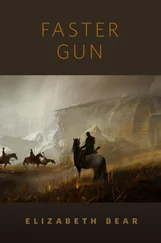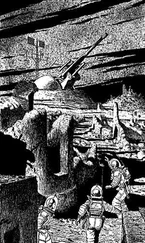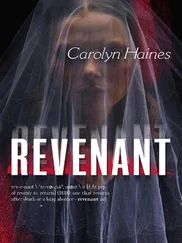Like most servitors, Hemiola, while not an expert on mothdrive technology, was acquainted with the basics. The larger the moth, the faster and more powerful its drive. Scoutmoths had minimal crews and were as small as they could practically be made while being able to keep up with a warmoth swarm. As far as Hemiola knew, the Nirai refused to acknowledge an upper limit on the moths’ size, but the lower limit for a useful scoutmoth was well known. After a certain point, invariant maneuver drives were more effective and less hassle.
“There you go,” the deltaform said, blinking to recapture Hemiola’s attention. It sent a databurst containing not just the protocols, but what claimed to be a standardized treaty for stranger-servitors from unaffiliated enclaves.
Hemiola reviewed the treaty, trying not to feel too overwhelmed. It didn’t see anything immediately objectionable. “I agree to this on the behalf of Tefos Enclave,” it said, “subject to future negotiation if necessary.”
“Of course,” the deltaform said, still in soothing blue. Perhaps unfairly, Hemiola wondered if it ever spoke in anything other than blue.
“—mediation.”
Suddenly aware that it had lost track of its surroundings, Hemiola redirected its attention to the catform. Mistrikor was gesturing animatedly at it.
The catform said to Hemiola, “I apologize for the irregularity of the proceedings.”
Hemiola refrained from mentioning that it couldn’t tell the difference, given how long it had spent away from mainstream servitor society. “Mediation?”
Jedao smiled wryly at it. “Since we’re both here and our goals are in conflict, yes.”
“I won’t help you destroy the hexarch.”
Jedao didn’t argue this point straight off. Instead, he said, “You must think highly of him.”
Hemiola wasn’t sure that was the case anymore. As it progressed through the hexarch’s notes, he became more and more absorbed—obsessed, even—with research and personal luxuries. It had tried to tell itself that this didn’t mean anything. But finding traces of the man who had tried to prevent a girl from starving to death grew increasingly difficult. Still, it said, “I know my duty. I thought you did too.”
Jedao’s smile became more lopsided. “Not many people would say that to me. The hexarch is old, and wise after a fashion; he has also hurt a lot of people. He can’t be allowed to remain in power.”
“Then let me look for evidence of that,” Hemiola said. “The man who left those notes wanted peace and stability and a world without hunger. How can those be bad things?”
“Good luck with that one,” the catform said to Jedao.
Jedao sighed. “Thank you so much.”
“You’re welcome.”
Jedao turned back to Hemiola. “I don’t know what happened to that man. But he wasn’t the man I met four hundred years ago, and as for who he is now—” His mouth compressed. “If you have access to the grid now—”
Hemiola blinked an affirmative.
“—perhaps I can show you some of the consequences of his decisions, even if he was too secretive to show himself in public.”
“I’ll take you up on that,” Hemiola said, scarcely believing its own boldness. “First, though, I need to know who Ajewen Cheris is, and why you’re going around with more than one name.” Based on Mistrikor’s reaction, Cheris, like Jedao, was someone with a reputation. With any luck, it would be able to verify the basics with access to Ayong Primary’s grid.
The discussion had attracted Mistrikor’s attention. “You haven’t heard of Cheris?” she demanded. “At least tell me you know who Jedao is.”
“Yes,” Hemiola said, a bit stiffly. “Which one are you?” it asked Jedao-Cheris-whoever.
“Whoever I need to be,” Jedao-Cheris-whoever said. Their eyes were sad. “I used to be one person. I was a Kel. Now I have fragments of a dead man in my head.”
It tried to parse that. “So you’re really Jedao.”
“I remember being the man who was Kujen’s companion for centuries,” they said. “And I remember being an ordinary infantry officer. I am who I need to be for the mission. Call me Cheris, if you like. It reminds me why I’m doing this.”
Mistrikor was practically bouncing on her toes. “I knew it! I knew you hadn’t left everyone behind.”
“Behind?” Hemiola asked.
“She broke the calendar,” Mistrikor said. “Nine years ago. It was a big deal. I guess you must have been in a very remote location if it didn’t affect you.”
All of Hemiola’s lights went dark as it tried to process this idea. This person who was part-Jedao had broken the hexarch’s own calendar? It had gotten far enough into the notes to understand how seriously the hexarch took the idea of constructing a new social order.
“Let me,” Mistrikor said, leaning forward. She didn’t seem to be intimidated by Cheris in the slightest. “How big was the human population of Tefos?”
“Usually zero,” Hemiola said, with perfect honesty. “The hexarch and Jedao”—it faltered, then resumed speaking—“were the only ones who visited, only for a month or so every century.”
Her eyes went round. “So there weren’t any remembrances?”
It consulted its memories. “The hexarch liked to practice the New Year’s dances,” it said, carefully omitting mention of Jedao, “although they didn’t visit around the actual New Year. He also liked anything to do with lanterns, for reasons that never became clear to me.”
Cheris’s face didn’t change, but it could detect the slight change in the heat distribution in her body: anger.
Mistrikor wasn’t done. “But nothing with Vidona?”
“He never brought any Vidona with him,” Hemiola said. It had a rudimentary awareness that the Vidona oversaw remembrances. That was all.
Mistrikor’s breath escaped her in a huff. “Well,” she said, without waiting for anyone’s permission. “I’ve got a lot to tell you about how the system works for ordinary people. Especially the remembrances.”

CHAPTER SIXTEEN
JEDAO WOKE UP in slow, painful stages, as though his muscles were peeling off until only the most essential ones remained. As a result, he didn’t realize that Dhanneth had been trying to spoon soup into him until the major came into focus all at once.
“Major,” Jedao said. It emerged as a croak.
“Shh,” Dhanneth said. “Don’t try to speak.”
He would have liked to ask why he was in a completely unfamiliar but enormous room instead of on a pallet of more reasonable size in Medical. It would have made him feel better if the space had been filled with mysterious, pulsating, life-giving machinery, not that he could tell mysterious, pulsating, life-giving machinery from the other kinds. Instead, curtains of bamboo strips hung at intervals to partition off sections of the room, forming a partial labyrinth. Candlevines glowed faintly from the walls and ceiling.
Then he remembered the battle.
“Shit!” Jedao said, and winced involuntarily at the pain. “The battle—”
“We prevailed, sir,” Dhanneth said. “Please, sir, the soup.”
More memories. He shoved the blanket down and examined his chest. Either someone had changed him into a new uniform or the old one had prodigious powers of self-repair. Gingerly, he felt for the hole. Nothing. Everything seemed solid. He could even hear his heart pounding.
Dhanneth tried to feed him again. Jedao flinched back from the spoon. “You saw what I am.” Whatever the hell that was.
“Yes,” Dhanneth said, with no sign of disgust at dealing with—what had Talaw said?—“an inhuman walking corpse.”
Читать дальше













